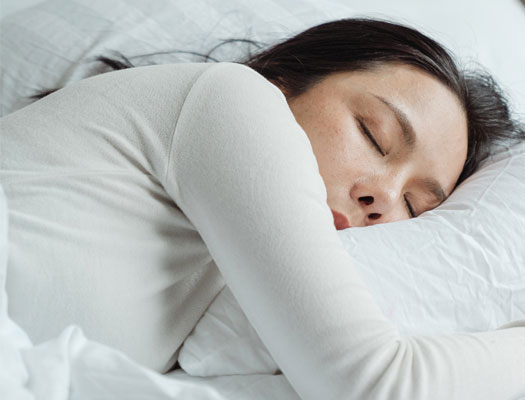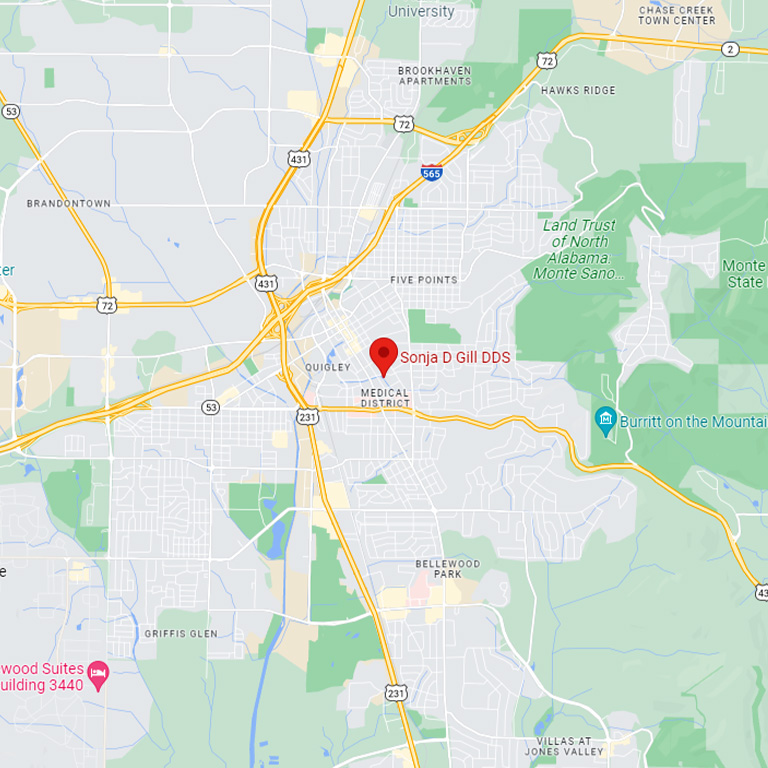Sleep Anea

Sleep apnea can be a challenging condition to diagnose and treat because many people are unaware that they snore, gasp for breath, or exhibit other apnea symptoms while sleeping. For this reason, scheduling an appointment for sleep apnea testing at Sonja Gill DDS and Sleep Center can help to put your mind at ease.
Understanding Sleep Apnea
Apnea is a Greek word that means breathless, which makes sense when you understand that sleep apnea causes you to stop breathing temporarily. The episodes typically only last a few seconds, but they can occur dozens of times every night.
The cause of sleep apnea depends on which type you have. With central sleep apnea, your brain fails to control your breathing properly. Obstructive sleep apnea, the more common type, blocks airways as you sleep.
Going without oxygen, even for a few seconds, causes your body’s survival instinct to kick in and wake you up. You can regulate your breathing again once you are awake. The downside is that waking up several times a night due to apnea episodes can prevent you from getting quality sleep. Typical examples of poor sleep quality include daytime drowsiness, difficulty concentrating, irritability, and a weakened immune system.
Sleep Apnea Risk Factors
People of any age can develop sleep apnea. Men tend to struggle with the condition more than women if they are younger than 50, but the condition affects both genders equally after that. Other risk factors for developing sleep apnea include:
- Being of African American, Asian, or Hispanic descent
- Being overweight or obese
- Having a heart condition, such as congestive heart failure or atrial fibrillation
- Living at a high altitude
If you have any of these risk factors and notice that you feel more fatigued during the day than usual, we encourage you to come in for a sleep apnea screening.
Common Treatments for Sleep Apnea

After evaluating the quality of your sleep, Dr. Gill may recommend a conservative treatment approach, using CPAP equipment to help you breathe consistently throughout the night, medication, or a combination of these treatments. For example, losing weight if you are overweight or obese can reduce or even eliminate your apnea episodes. Sleeping in a different position, using a support pillow, or using over-the-counter products like nasal strips or sprays can all have a positive impact on your sleep apnea.
If you currently take opioid medication, you may want to speak to your doctor about switching to another type of medication not known to cause issues with sleep apnea. Similarly, if you have a medical issue like atrial fibrillation, treating that issue may cause your sleep apnea to go away.
Using a CPAP machine, which stands for continuous positive airway pressure, has long been the standard treatment for sleep apnea. You wear a mask over your face attached to a hose that delivers continuous pressurized air into your mouth and lungs.
Every person who struggles with sleep apnea in Huntsville, AL, is unique and deserves a customized treatment plan. Please contact us to request a consultation at your convenience.

